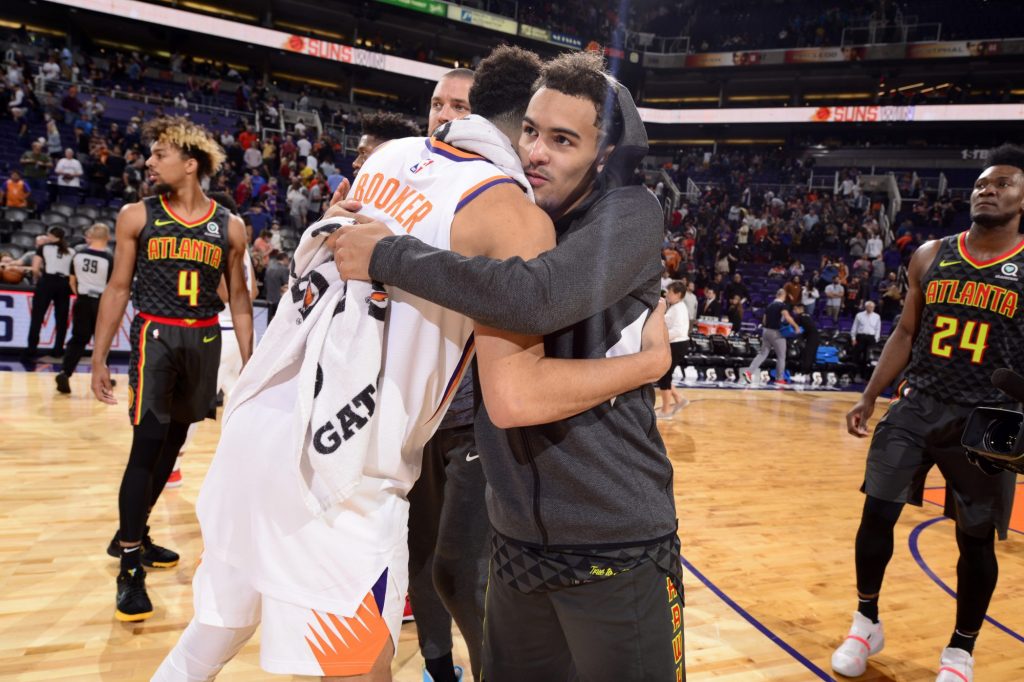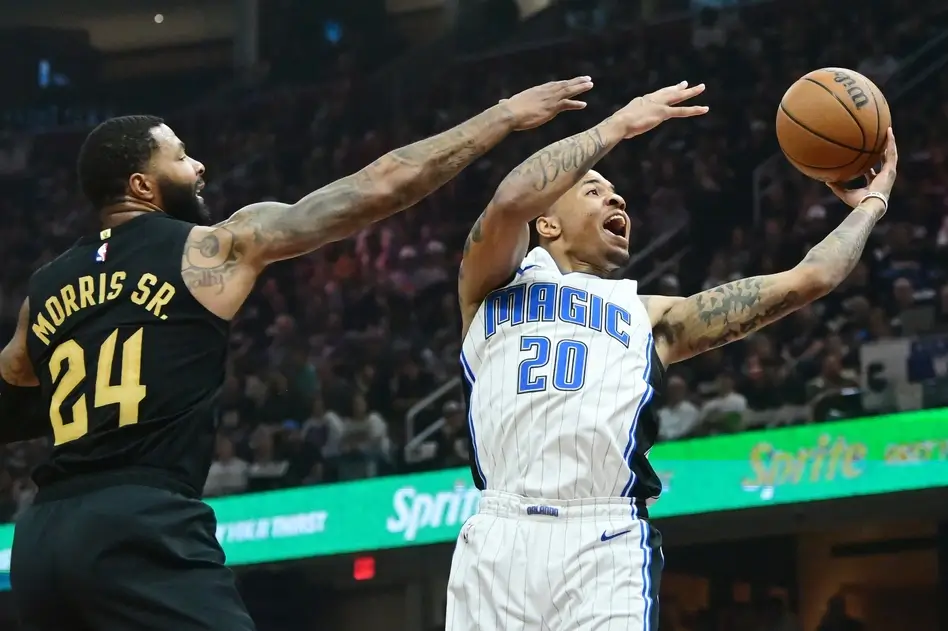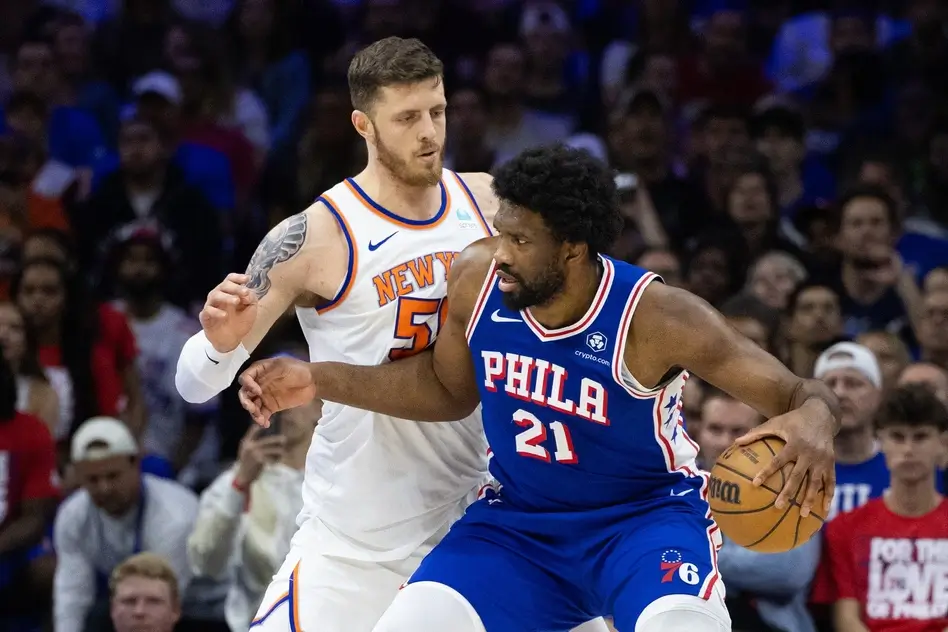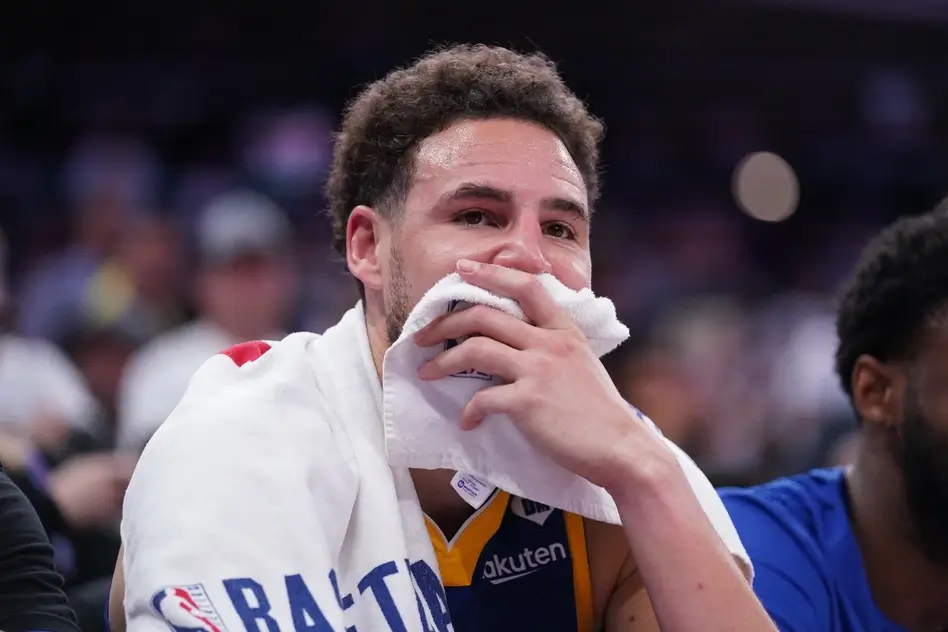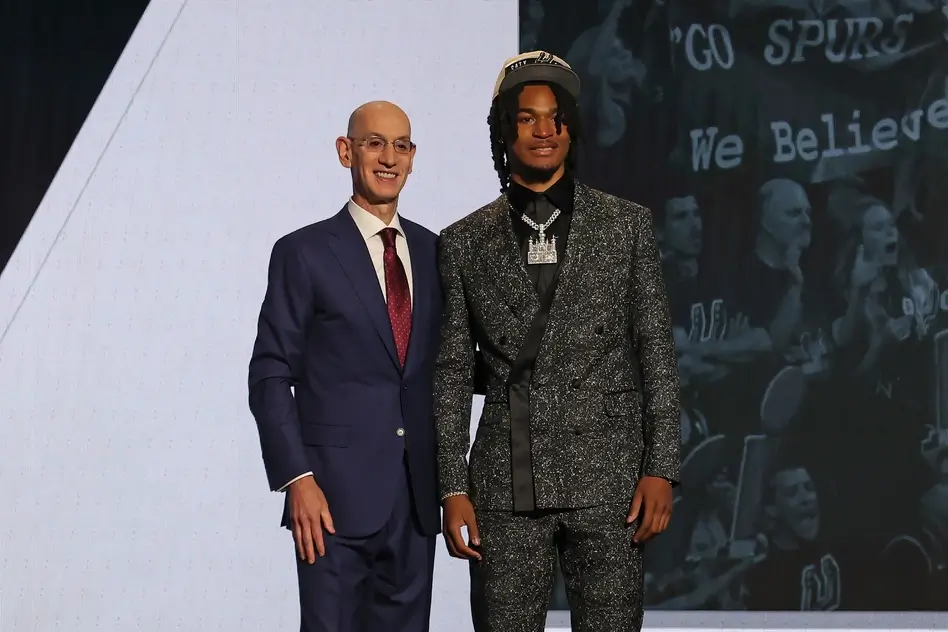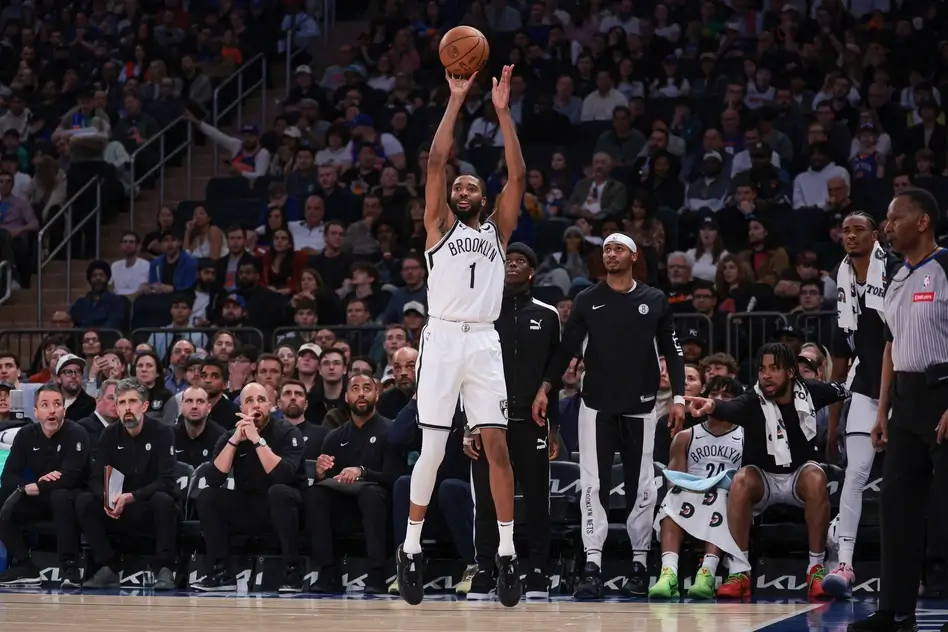Out of the four teams remaining in the 2021 playoffs, there are only two premier scoring guards remaining: Trae Young and Devin Booker. Both guards are considered as two of the best young players in the league. It’s their first playoff appearance but they already made a huge impact as they helped their teams reach the conference finals for the first time.
Trae Young vs Devin Booker comparison
Although in different positions, Young and Booker have established themselves as the league’s best guards. Both are offensive juggernauts who can also facilitate. At such a young age, they are already the face of their respective franchises.
So who is the better all-around player? It’s hard to know without dissecting their game up to the little things they do. Now let’s take a closer look at the Young vs Booker comparison…
Offense
Our NBA player comparisons always start in offense. After all, this is where Young and Booker excel at. Both are offensive superstars who can score whenever and wherever they want. Devin Booker reminds us of Kobe Bryant‘s midrange game and relentless scoring, while Trae Young reminds us of Stephen Curry‘s three-point shooting and craftiness. It’s literally fire vs ice.
Per-game stats
| Player | FG% | 3P | 3PA | 3P% | 2P | 2PA | 2P% | eFG% | FT | FTA | FT% | TRB | AST | TOV | PTS |
|---|---|---|---|---|---|---|---|---|---|---|---|---|---|---|---|
| Devin Booker | .484 | 1.9 | 5.5 | .340 | 7.4 | 13.7 | .543 | .533 | 5.1 | 5.9 | .867 | 4.2 | 4.3 | 3.1 | 25.6 |
| Trae Young | .438 | 2.2 | 6.3 | .343 | 5.6 | 11.3 | .491 | .499 | 7.7 | 8.7 | .886 | 3.9 | 9.4 | 4.1 | 25.3 |
Let’s start with their 2020-2021 regular season stats. In the scoring department, they are almost the same, averaging 25+ points per game.
Booker is a high-volume scorer capable of pulling up in the midrange, posting up smaller players, and finishing at the rim. While he can also facilitate the ball, it’s not that evident this year compared to his previous combo guard years. Booker’s assist numbers were down to 4.3 per game compared to 6.6 in the last two seasons.
The arrival of Chris Paul took the playmaking duties off Booker’s shoulders. He’s now focused on what he does best—to score the ball. Also, the Suns’ improved depth allowed Booker to rest more.
Meanwhile, Young is a deep-range bomber who is the main facilitator of Atlanta. He is crafty with the ball—being able to quickly change directions and speed. The 6’1 point guard also thrives off the free throw line (7.7 FT made on 8.7 attempts). His craftiness allows him to effectively create contact and put the defender at his mercy.
Young’s biggest advantage against Booker is his playmaking. His 9.4 assists per game are second in the league—behind Russell Westbrook‘s 11.7. He is a constant double-double threat every night with points and assists. Compared to the previous season, Young’s 4.3 points per game drop in scoring was notable. However, his assist rate also increased 10% on a per-possession basis while his usage went down. Given a better supporting cast, Young is now more willing to pass the ball rather than taking everything offensively into his own hands.
Efficiency
When it comes to efficiency, Booker wins by a mile. As you can see above, he shoots better overall from the field (48%) and inside the three-point line (54%). He drastically improved his shot selection over the past few years. This is also well documented as Booker can thrive off the ball as a catch-and-shoot player which he does effortlessly. Compared to Young, Booker takes care of the ball with 3.1 turnovers per game.
Meanwhile, Young is shooting 44% on the field, 34% on three, and 49% on two. He turns the ball over more with 4.1 turnovers per game. His inefficiency and carelessness are well documented in games as he likes to chuck threes from way beyond the arc and coughs the ball up often.
Still, it’s a given that Young is prone to mistakes since he is just 22 years old. As he gains enough experience in the NBA, his inefficiency numbers should improve in the next couple of years.
Offensive impact
| Player | PER | TS% | 3PAr | FTr | TRB% | AST% | TOV% | USG% | OWS | OBPM | VORP |
|---|---|---|---|---|---|---|---|---|---|---|---|
| Devin Booker | 19.2 | .587 | .288 | .305 | 7.0 | 20.6 | 12.4 | 32.7 | 2.9 | 1.4 | 1.1 |
| Trae Young | 23.0 | .589 | .357 | .491 | 6.3 | 45.5 | 16.2 | 33.0 | 5.9 | 5.4 | 3.0 |
When it comes to who’s valuable offensively, Young is better. As you can see, his offensive win shares are an avalanche (5.9) compared to Booker’s 2.9. It passes the eye test too as Trae does it all on the offensive end. Young is Atlanta’s main scorer and playmaker. He can shoot threes and floaters, and likes to facilitate the ball to his teammates. He also thrives at the free throw line with a free throw attempt rate of 49%.
This is also evident when it comes to team impact. The Suns have an offensive rating of 120.5 when Booker is on the court. It falls to 112.8 when he’s off the court. Meanwhile, the Hawks have an offensive rating of 120.5 when Young plays. It nosedives to 108.1 when he’s off the court.
Defense
Young and Booker are not known for their defense. Being the top scorers in the NBA, they have to conserve their energy so they can perform well offensively. Still, being an offensive superstar is not an excuse not to play defense. You have to at least give effort defensively. Remember, defense wins championships.
At first glance, Young should lose this with ease. After all, he’s just a 6’1 180 lb point guard. Meanwhile, Booker is much bigger being a 6’6 guard. But before we jump to conclusions, let’s take a look if that’s really the case…
Based on matchup
Against Devin Booker (46.1%)
- Guards: 162/387 (41.9%)
- Forwards: 133/266 (49.2%)
- Centers: 26/39 (66.7%)
Against Trae Young (46.6%)
- Guards: 187/428 (43.7%)
- Forwards: 55/98 (56.1%)
- Centers: 10/15 (66.7%)
As you can see from their defensive stats above, Booker is the better one-on-one defender than Young. This is simply because he is bigger than Trae at 6’6. His size allows him to cover guards and even smaller forwards. Teams hunt and abuse Trae’s small stature in certain matchups. Nowadays, point guards are even going bigger with the likes of Luka Doncic and Ben Simmons. This is certainly a matchup nightmare for Young.
Based on distance
Against Devin Booker (45.7%)
- 3 pointers: 36.9%
- 2 pointers: 52.8%
- Less than 6ft: 62.0%
- Less than 10 ft: 58.2%
- Greater than 15 ft: 37.6%
Against Trae Young (45.1%)
- 3 pointers: 36.9 %
- 2 pointers: 51.5%
- Less than 6ft: 60.6%
- Less than 10 ft: 56.5%
- Greater than 15 ft: 37.8%
Defensive impact
| Player | ORB% | DRB% | TRB% | STL% | BLK% | DWS | DBPM |
|---|---|---|---|---|---|---|---|
| Devin Booker | 1.7 | 12.1 | 7.0 | 1.2 | 0.6 | 2.0 | -1.5 |
| Trae Young | 2.0 | 10.5 | 6.3 | 1.2 | 0.5 | 1.3 | -1.7 |
As you can see from the stats above, Booker is more valuable defensively than Young. His defense actually translates to more wins compared to Trae.
When it comes to team defense, the Hawks’ defensive rating is 114.91 when Young is on the court versus 108.80 when he is not on the floor. Meanwhile, the Suns’ defensive rating is 113.66 when Booker is playing compared to 109.21 when he’s on the bench.
Both the stats and the eye test shows that Young is still a liability on defense, as opponents abuse his small frame and height. Meanwhile, Booker has a respectable defense through his constant effort. While both of them are far from being lockdown defenders, their respective teams brought elite defensive players around them to compensate.
2021 Playoff performance (so far)
Young and Booker have been deemed as “empty stats” guys in previous seasons due to their inability to carry their teams to the playoffs. While it’s a valid argument, it’s not fair for these two to be labeled as such. Basketball is a team game. Without a better supporting cast, they would’ve been always in the position to lose.
For Booker, he played in a struggling Phoenix team for the most part of his career. He trusted the Suns organization to build a championship contender around him from top to bottom. Since then, Phoenix signed Monty Williams as head coach, drafted Deandre Ayton with the 1st overall pick, and traded for Chris Paul. As a result, they finished second in the West and are participating in the 2021 WCF.
Booker has been on a tear in the 2021 playoffs—averaging 28.3 points, 7.1 rebounds, and 5.3 assists on 48/38/93 shooting splits. He also scored a playoff career-high 47 points and 11 rebounds against the Lakers in the first round. What a performance.
Meanwhile, Young also had a fair share of being on the losing side. Atlanta failed to reach 30 wins in the previous three seasons. It seemed that the Hawks will be bad again this year due to their early season struggles. However, things started to turn around when Nate McMillan became the interim head coach. Since then, Atlanta clinched the fifth seed with a 41-31 record.
In the playoffs, Young continues to prove everyone wrong with his monster performances. He’s currently averaging 30.5 points, 3.0 rebounds, and 10.5 assists on 42/33/87 shooting splits. Recently, he dropped a playoff career-high 48 points and 11 assists against the Bucks in the ECF.
As you can see, these two have been performing well in the playoffs. Leading their teams for the first time in the playoffs cemented them as two of the best young players in the league.
Young vs Booker: Verdict
Now for the Young vs Booker comparison, who’s the better all-around player?
The answer is Devin Booker. He is clearly the more polished player than Young at the moment. His offensive versatility is a huge advantage because he can play off the ball as well. Also, he defends better due to his size.
It may be a different narrative 2-3 years in the future. Young is still scratching the surface of his peak at 22 years old. Booker is already going to turn 25 this year and we might be seeing the best of him already. As Young gains more experience in the NBA, he will definitely polish all his flaws. But for now, Booker is the better all-around player.
Still, both are offensive superstars capable of leading their teams given the right supporting pieces. We’ll see in the next couple of weeks who will reach the NBA Finals first, and possibly win the championship. Until then, it’s time to give credit to these two as the best young players in the NBA.
[spreaker type=player resource=”show_id=4112709″ width=”100%” height=”200px” theme=”light” playlist=”false” playlist-continuous=”false” autoplay=”false” live-autoplay=”false” chapters-image=”true” episode-image-position=”right” hide-logo=”false” hide-likes=”false” hide-comments=”false” hide-sharing=”false” hide-download=”true”]


